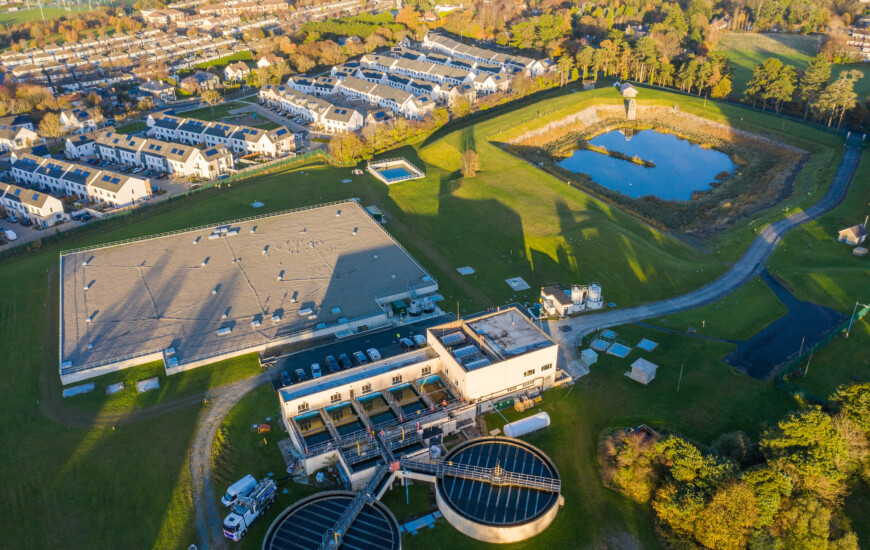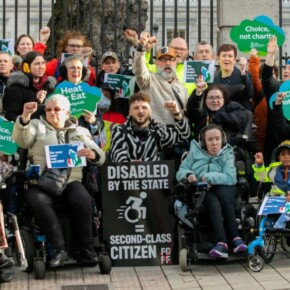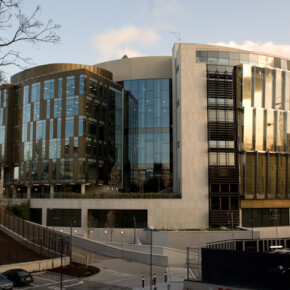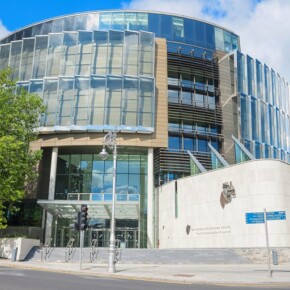Government rules out water charges
Padraig Conlon 23 Apr 2025
The Government has emphatically ruled out the introduction of household water charges, insisting that any such move would require new legislation while reaffirming that there are no plans to introduce charges within the new programme for government.

Minister for Housing James Browne (pictured above) made the assurance in Dáil Éireann last week as Sinn Féin’s Water Services (Repeal of Water Charges) Bill 2025 was debated and ultimately defeated.
The Bill, which proposed a permanent legislative ban on water charges, was rejected by 83 votes to 64.
Despite the defeat, the debate laid bare the growing tensions over the future of water services in Ireland, with opposition TDs warning that recent signals from Government and Uisce Éireann, formerly Irish Water, suggest a return to household water fees may still be on the cards, particularly in the form of charges for “excessive use.”

Sinn Féin’s housing spokesperson Eoin Ó Broin (pictured above) accused the Government of preparing the ground for future charges, calling a recent report on potential usage-based billing a “Trojan horse” designed to normalize what would eventually become widespread domestic water charges.
“People know and understand that this is nothing more than a Trojan horse for what would eventually be widespread water charges for people connected to the public water system,” he said.
“Despite Government denials, the alarm bells are ringing.”
The issue of water charges has a long and controversial history in Irish politics.
The introduction of Irish Water in 2013 and the attempted rollout of domestic water charges under Fine Gael and Labour sparked a nationwide backlash, culminating in mass protests, a widespread non-payment campaign, and a collapse in public trust around the utility.
Those events led to the suspension of charges in 2016, and subsequent governments have steered clear of reintroducing them.
But suspicions have lingered, especially as infrastructure strain becomes more acute.
Sinn Féin’s now-defeated Bill would have closed the door entirely on the return of such charges, something Ó Broin said was necessary to guarantee that access to water remains a right, not a privilege.
“Water is a fundamental human right,” he told the Dáil.
“It is vital for our families, our communities and public health but also for the well-being of society, our economy and, indeed, our environment.”
Ó Broin added that Ireland is uniquely positioned in the OECD, as the only member state with zero levels of water poverty, something made possible by the model of funding water through taxation and commercial rates rather than household billing.
While the political argument raged, several TDs focused their remarks on the state of the country’s water infrastructure, and the growing risks facing Dublin in particular.
Fianna Fáil TD Cormac Devlin, who represents Dún Laoghaire, called the capital’s current system “unsustainable,” noting that over 1.7 million people — around a third of the population — rely on the River Liffey for 85% of their water.
“This single-source dependency leaves us vulnerable to drought, contamination and population pressures,” he warned.
“Uisce Éireann has rightly called this a lack of resilience. We simply do not have the supply capacity to meet the demands of our growing economy and housing needs. That is not a forecast; it is a fact.”
Devlin acknowledged significant Government investment in recent years.
Between 2020 and 2024, more than €5 billion was spent on upgrading the water network nationwide.
Last year alone, 42 new or upgraded wastewater treatment plants and nine water treatment facilities were completed, alongside hundreds of kilometres of new mains.
But he stressed that investment must accelerate.
For 2025, Uisce Éireann has been allocated €2.2 billion in Exchequer funding, including €514 million in equity investment from Budget 2025.
By 2029, a total of €16.9 billion will be invested — the largest single investment in water infrastructure in the state’s history.
Of this, €10.3 billion is for capital upgrades and €6.6 billion for operations.
Dublin’s wastewater systems also came under scrutiny.
Devlin singled out the ecological and tourism value of Dublin Bay, which he described as a “natural treasure” and a key part of the city’s identity.
But the bay is under threat from persistent water quality issues, particularly due to sewage overflows following heavy rainfall.
“Bathing waters like Sandycove, Seapoint and the Forty Foot are regularly monitored, and occasionally closed, due to these overflows,” he said, noting that outdated infrastructure and capacity issues were to blame.
The long-awaited Greater Dublin Drainage (GDD) project, with a €1.2 billion budget, is intended to tackle the crisis by creating a new regional wastewater treatment facility serving north Dublin, Meath and Kildare. The project’s planning application is currently under consideration by An Bord Pleanála.
“We need that decision urgently,” Devlin said. “Every delay impacts water quality and public confidence.”
Paul Murphy, the People Before Profit TD for Dublin South-West, used the debate to attack Uisce Éireann more broadly, calling it a failed organisation created for the purpose of eventual privatisation.
“The only real rationale of Irish Water was to take the public assets previously in the hands of local authorities, tie them up in a bow and prepare them for privatisation,” he said.
“That plan, certainly of full-frontal privatisation, was stopped by a mass movement of protest and non-payment.”
Murphy gave a harrowing example of a Springfield couple in Tallaght whose garden has been flooded with raw sewage for years due to a malfunctioning pipe.
Despite the pipe belonging to Uisce Éireann, the couple were repeatedly told the utility was not responsible.
“They have been trying to get help for over ten years,” Murphy said.
“Uisce Éireann’s response has been to pass the buck… On top of being totally unhelpful, Uisce Éireann has threatened this couple with criminal charges if they try to fix the problem themselves.”
He added: “It is not just affecting the family I mentioned but their neighbours as well. Raw sewage flooding into anyone’s garden is an obvious health hazard.”
Fianna Fáil TD John Lahart also weighed in on the deterioration of frontline services since Irish Water took over responsibilities from local councils.
“He described how in the past, local authorities like South Dublin County Council would respond quickly to sewer blockages affecting households.
“They would come out, unblock the pipe, bring the tanker out, and everybody was happy,” Lahart said.
“But when Irish Water took over, it ceased doing that in most cases, saying the fault was on the private or residential side.”
He said residents now face a far more difficult and bureaucratic process when trying to resolve even basic infrastructure issues — something that has eroded public trust.
Minister of State Kieran O’Donnell wrapped up the debate by offering a clear and direct assurance: “There will be no introduction of a household water conservation charge. It is not in the programme for Government and it will not be introduced. That is categorical.”
O’Donnell also promised a renewed focus on improving communications between Uisce Éireann, elected representatives, and the public.
He praised the efforts of Uisce Éireann staff on the ground but acknowledged that the agency’s public reputation had suffered.











